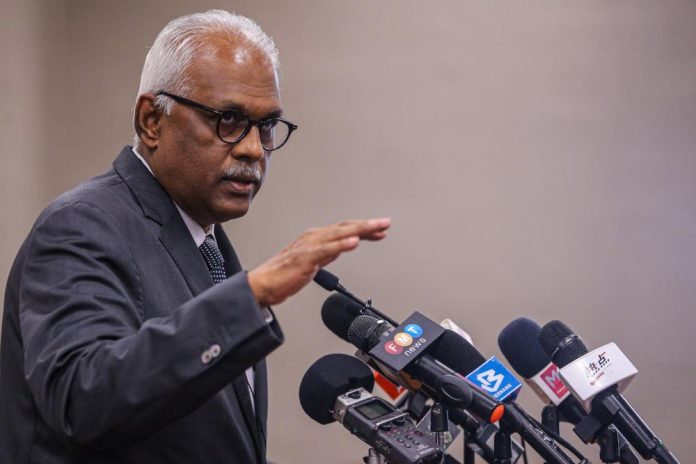.JPG)
KUALA LUMPUR, Jan 30 — With more Malaysians marrying foreigners and creating transnational families, the government should relook its current citizenship and immigration policies as a way to develop the country’s talent, Opposition MP Charles Santiago suggested.
The Klang MP warned that the brain drain issue may worsen if such policies continue to be less than welcoming of transnational families as they may migrate to another country perceived to be more accommodating.
To Charles, the government should see the expatriate spouses as potential contributors to Malaysia’s economy and consider ways to develop this talent pool.
“My view is that the government’s management of the citizenship question, including of foreign spouses, is that it views the issue from a law, order and security perspective; and not from a development perspective.
“The government needs to shift its perspective to a development perspective,” he said during an online forum conducted by advocacy group Family Frontiers last night.
During the forum titled “Economic Marginalisation Impacting Malaysian Transnational Families”, Charles pointed out that more than a million Malaysians are working overseas, and urged the government to take advantage of non-Malaysian spouses to balance out the brain drain.
“Here we have a situation where we have people who are trained, they are professionals, academics, engineers, and experts who are working on big data, for all you know, artificial intelligence, digitalisation and the like.
“A prudent government would think these are assets of Malaysia… Why do you treat them as the enemies of the state? They are friends of the state. The narrative really has to change,” he said.
Family Frontiers reported that in a survey they conducted on over 516 non-Malaysian spouses living here, 75 per cent claimed to have a bachelor’s degree or higher. However 49 per cent of them reported being unemployed.
The survey also revealed that many of those who do have jobs, are in key industries, with the largest number working in information technology (28 per cent), followed by business management (13 per cent), education (12 per cent), and engineering and manufacturing (10 per cent).
Family Frontiers also reported that there were severe restrictions imposed upon these non-Malaysian spouses, among them the Long Term Social Visit Pass or spouse visa, which it claimed was often unavailable to spouses who work overseas or work remotely for overseas companies.
Furthermore it said, the Immigration Department was not consistent in handling cases, with cases being handled varyingly when managed by different branches or by different officers.
Family Frontiers said such constraints have been putting a severe strain on transnational families’ finances, and causing mental anguish, which is forcing some to consider living in other countries.


